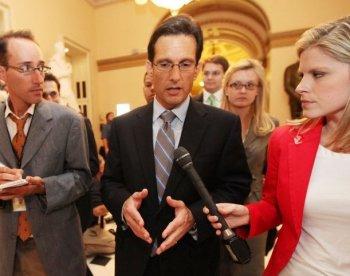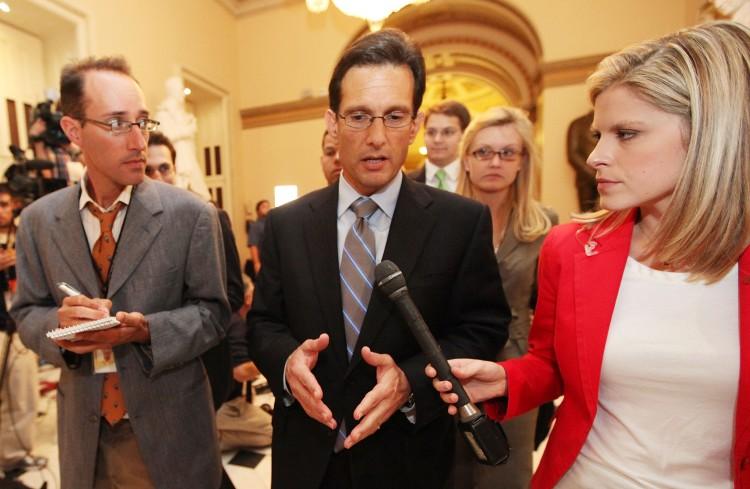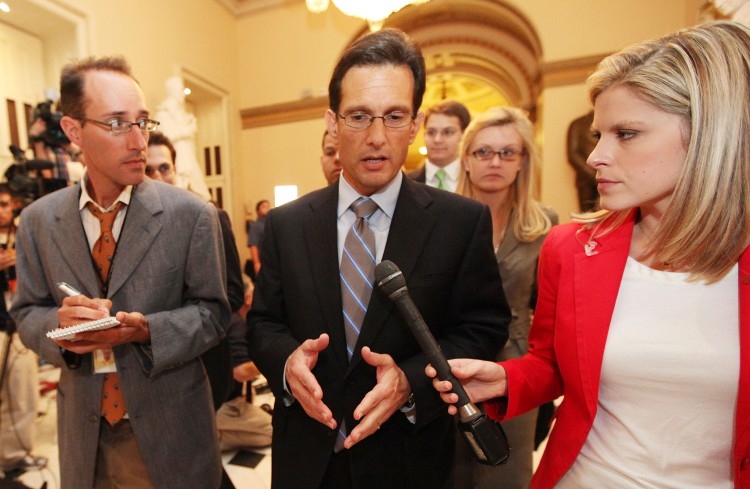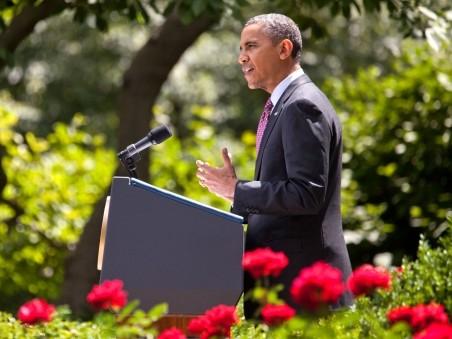House Votes 269—161 for Debt-Reduction Bill
A day after President Barack Obama announced to the nation that leaders from both parties had achieved a compromise deal to lift the debt ceiling, the House of Representatives voted to pass the new debt bill, now known as the Budget Control Act of 2011.

House Majority Leader Eric Cantor (R-VA) (C), speaks with reporters after the House voted to raise the debt ceiling at the U.S. Capitol on August 1, in Washington, DC. Mario Tama/Getty Images
|Updated:





